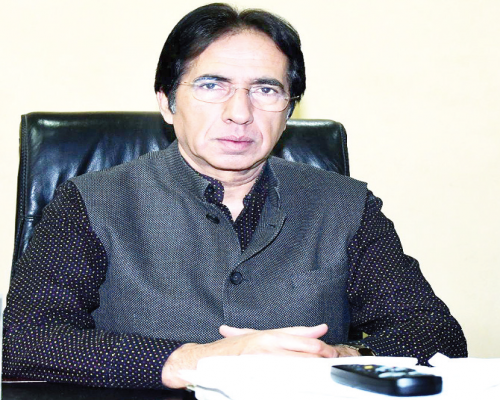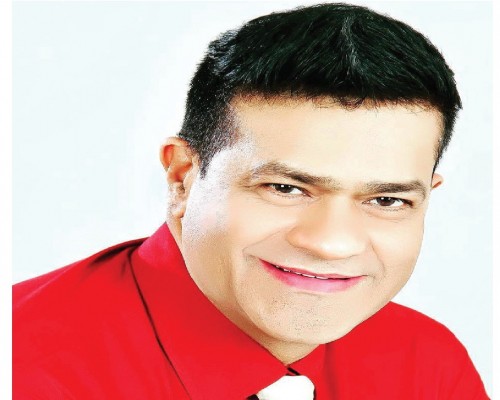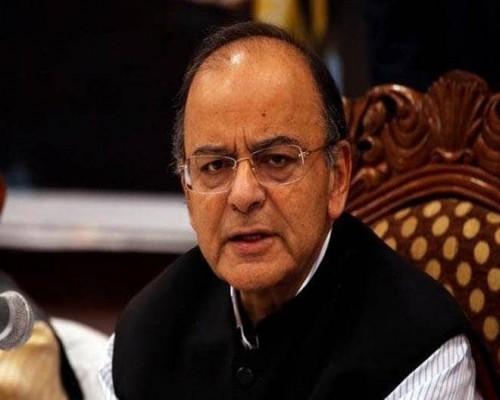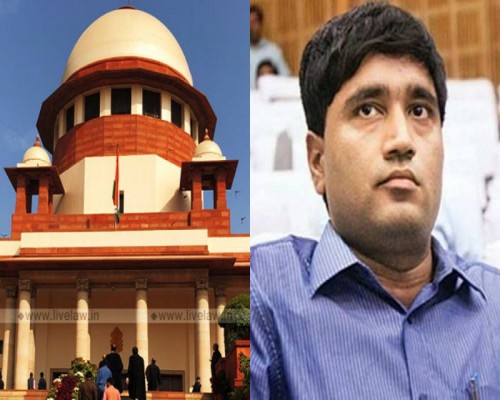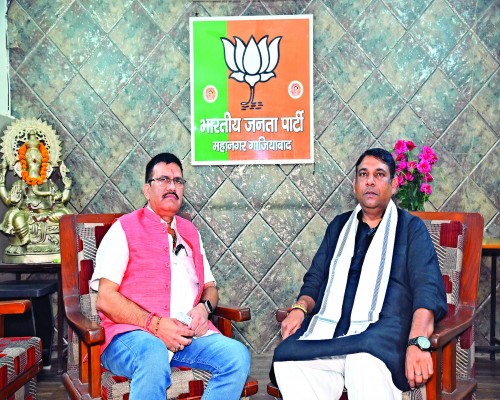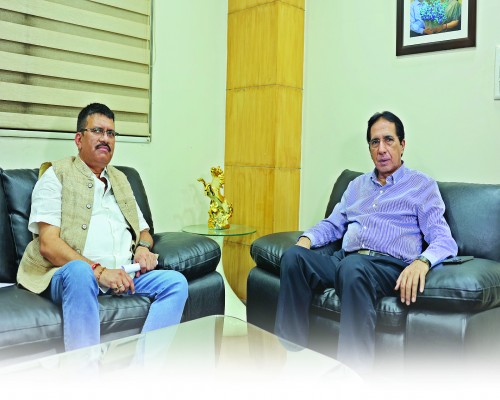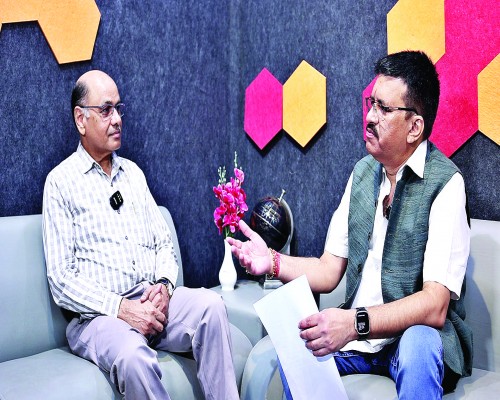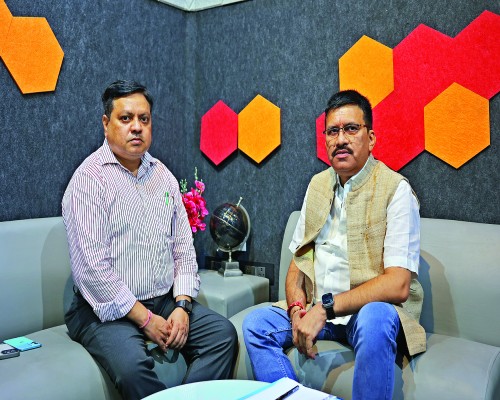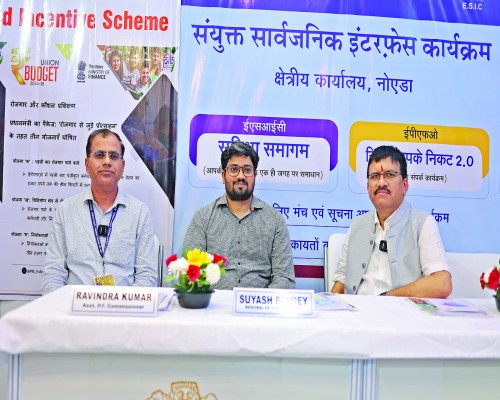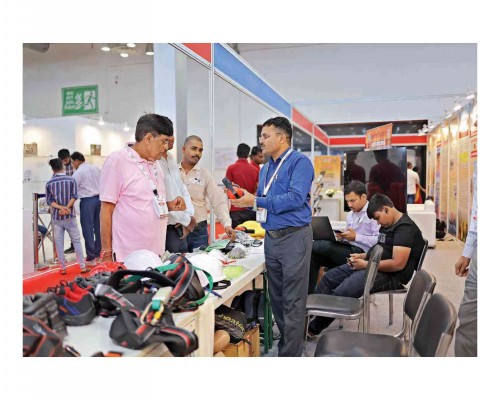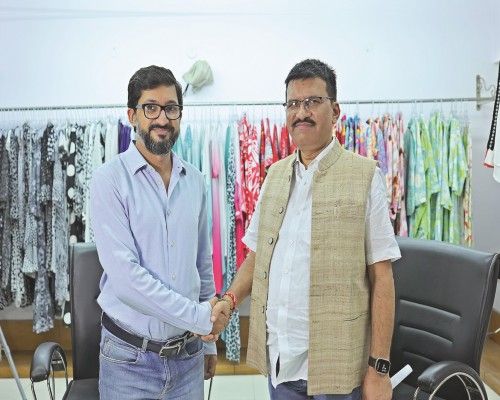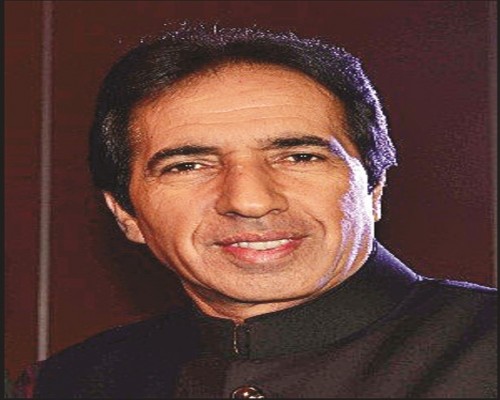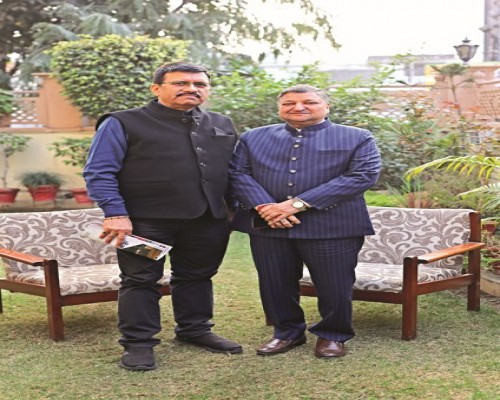Guarding India's Workforce: Rajkumar Sisodia on Building a National Security Network with Integrity and Compassion
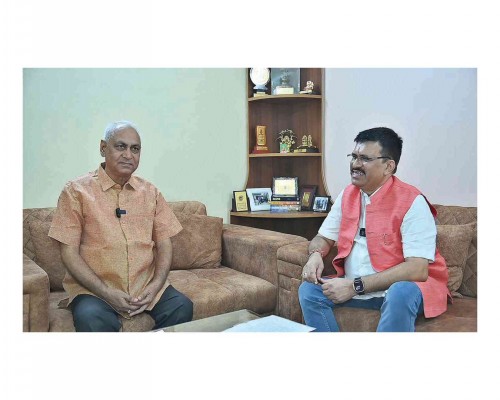
"Guarding India's Workforce: Rajkumar Sisodia on Building a National Security Network with Integrity and Compassion"
Rajkumar Sisodia's Journey in the Security Services Industry
Satendra Singh: Welcome to UV India News. Today, we have with us Mr. Rajkumar Sisodia, a distinguished entrepreneur who runs his company VSG, specializing in manpower and security services across India. From Jammu and Kashmir to Kanyakumari, VSG has a significant presence with thousands of employees. Mr. Sisodia, it’s a pleasure to have you with us. To start, could you share how your company began and what inspired you to venture into this line of work?
Rajkumar Sisodia: Thank you. My journey began in a rural background where opportunities and education were limited. In 1988, when the NTPC Dadri project started, I noticed a lack of trained labour. Unemployment was high, so we facilitated employment through the company. Later, I was encouraged by Mr. P.D., the project director at L&T, who suggested I establish a security firm. That marked the beginning of our journey in security and manpower services.
Satendra Singh: So, when did VSG officially start operations?
Rajkumar Sisodia: Around 1999.
Satendra Singh: Starting a company is never without its challenges. Can you share some of the difficulties you faced during those early years?
Rajkumar Sisodia: Initially, it was quite challenging. The first year was particularly difficult as we navigated legal requirements like obtaining PF and ESI numbers. Even after the implementation of the Service Tax, we encountered companies unwilling to provide the mandated PF or pay minimum wages. It took nearly three to four years to establish these basic rights for our employees.
Satendra Singh: Does your company offer training programs to enhance employee skills, ensuring they’re well-prepared for placements?
Rajkumar Sisodia: Yes, we’ve operated training canters in places like Sagar District, MP, Hapur District, and Bharuch in Gujarat. Although obtaining proper certification and approvals can be challenging, we still conduct training sessions with the help of ex-military personnel who guide our recruits through camps.
Satendra Singh: In your industry, contract rates often fluctuate, with companies competing to provide lower rates. What issues arise when principal employers seek the lowest possible rates, and what would you like the government to address in this regard?
Rajkumar Sisodia: The biggest issue is the proliferation of agencies that lack proper registrations for PF, ESI, or GST. These agencies can offer rates below the minimum wage, often making workers toil for 12-hour shifts without fair compensation. This exploitation goes unchecked, as employers turn a blind eye to these practices. I believe the government should enforce the Private Security Agency Regulation Act (PSARA) more strictly to ensure that unregistered agencies cannot operate.
Satendra Singh: In your line of work, security guards often work tirelessly in harsh conditions—whether under the sun or in the rain. What facilities do you or your principal employers provide to ensure their well-being?
Rajkumar Sisodia: The primary responsibility lies with the principal employer, who should ideally provide a shaded area or cover for guards on duty. Unfortunately, this is rarely practiced, and guards often stand exposed to extreme weather conditions. Another significant issue is that many companies employ fewer guards than necessary. For instance, if a site needs ten guards, they may only assign four, putting excessive strain on the guards and creating vulnerabilities. When theft or mishaps occur, blame is often unfairly placed on the guards or the agency, making it challenging for smaller agencies to compete fairly with large corporations.
Satendra Singh: Do you face challenges in receiving timely payments from clients, especially since timely payments are crucial for PF, ESI, and GST compliance?
Rajkumar Sisodia: Unfortunately, delayed payments are common across industries. While PF contributions need to be deposited by the 15th and GST by the 20th, delayed client payments force us to rely on bank loans or overdrafts. This causes additional financial strain, especially for smaller agencies, and affects workers who depend on timely wages.
Satendra Singh: Do you engage in any Corporate Social Responsibility (CSR) activities, even though you’re not mandated by the CSR Act?
Rajkumar Sisodia: While CSR isn’t obligatory for us, we prioritize the well-being of our employees. We provide health insurance and assistance for various needs, such as marriage expenses and unexpected health issues. We believe in taking care of our employees beyond the basics, as humanity and compassion should remain at the heart of HR practices.
Satendra Singh: What message would you like to convey to the youth or new entrepreneurs aspiring to establish their own businesses, especially in the security services sector?
Rajkumar Sisodia: First and foremost, aspiring entrepreneurs must secure all essential registrations, including PSARA, PF, ESI, and GST. Additionally, they should ensure that they’re charging fair rates and respecting minimum wage laws. Government monitoring is crucial, as is compliance with labour laws to protect employees from exploitation.
Satendra Singh: Thank you very much, Mr. Sisodia, for sharing these insights. We appreciate your time and dedication.
Rajkumar Sisodia: Thank you. It was my pleasure.
4o




